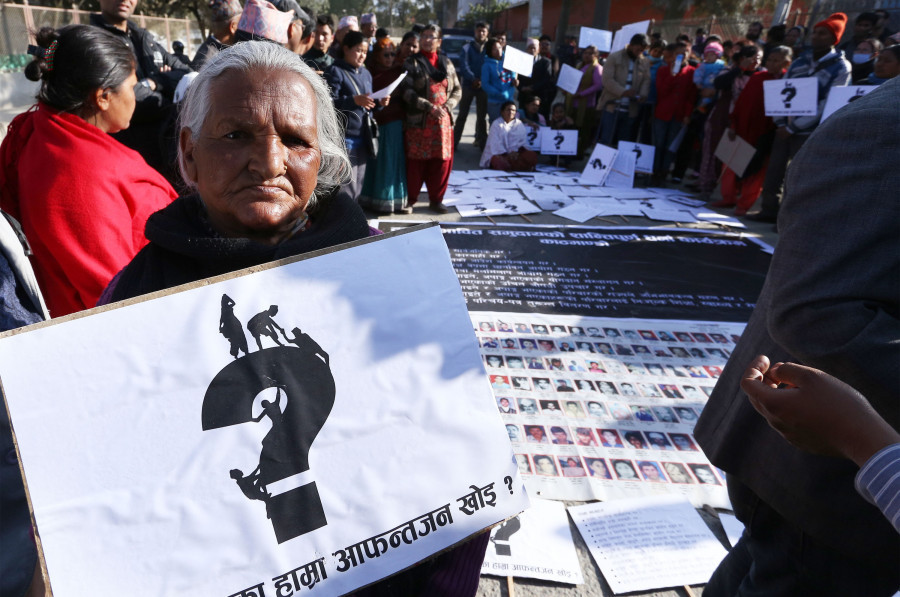National
Law ministry starts drafting transitional justice law amendment without victims onboard
Activist says bill being prepared in the darkrooms cannot be expected to deliver
Binod Ghimire
Despite reservations from conflict victims and rights activists, the law ministry is giving final touches to a bill to amend the Enforced Disappeared Enquiry and Truth and Reconciliation Act.
The Ministry of Law and Justice plans to present the amendment before Parliament during its current session without conducting a national-level discussion on the issue.
“The ministry is working on the amendment draft based on feedback received from the provinces,” said an undersecretary at the ministry on the condition of anonymity because he was not allowed to talk to the media. “We have been told that the winter session of Parliament will endorse it.”
Following pressure from conflict victims, civil society organisations and international rights organisations, the ministry on January 13 organised discussions on the bill with stakeholders in seven provinces. However, victims were allotted just three hours to express their concerns and many didn’t even get time to speak. Participants of the consultations said the events were organised for formality than as part of genuine efforts to listen to their grievances and concerns.
The ministry had assured the victims that similar consultations would be organised in Kathmandu before the amendment bill is finalised. However, the ministry is giving final touches to the draft even before the event in Kathmandu. Dhana Raj Gyanwali, spokesperson for the ministry, said he was unaware about such consultations.
The ongoing bill session of Parliament began on December 20 last year. However, it started deliberations on the bills only after Agni Prasad Sapkota was elected as the Speaker on January 26.
The controversy over the amendment comes days after a committee led by former justice Om Prakash Mishra, picked the heads of the two transitional justice commissions without consulting with the victims. The chairpersons and members of the commissions were selected after the Nepal Communist Party and Nepali Congress reached a deal on allocating seats on the commissions.
“We have been ignored in the drafting process,” Suman Adhikari, former chairman of the Conflict Victims Common Platform, told the Post. “Any law enforced without the consent of the victims will be unacceptable.”
Along with the victims of the decade-long Maoist insurgency, human rights defenders and international human rights organisations have been asking the government to amend the Act with meaningful participation of the concerned parties. “As the preparation of the amendment draft is being done in the darkrooms, we are least hopeful it would abide by the Supreme Court verdict,” Charan Prasain, a human rights activist, told the Post. “It is unfortunate that the government and the parties haven’t learnt from past mistakes.”
The activists and the victims both want the law to be amended in accordance with the Supreme Court verdict on the issue as well as international principles of transitional justice.
The Supreme Court in 2015 struck down amnesty provisions in the Act. However, five years after the order was issued, the government is yet to revise the controversial provisions. The Act, in its current form, allows amnesty even for those involved in cases related to serious human rights violations.
The government, in June 2018, made public a draft of the amendment bill proposing reduced punishment even for those found guilty of heinous crimes. The draft was withdrawn following serious criticism from different quarters.




 18.12°C Kathmandu
18.12°C Kathmandu














